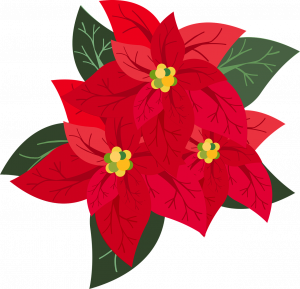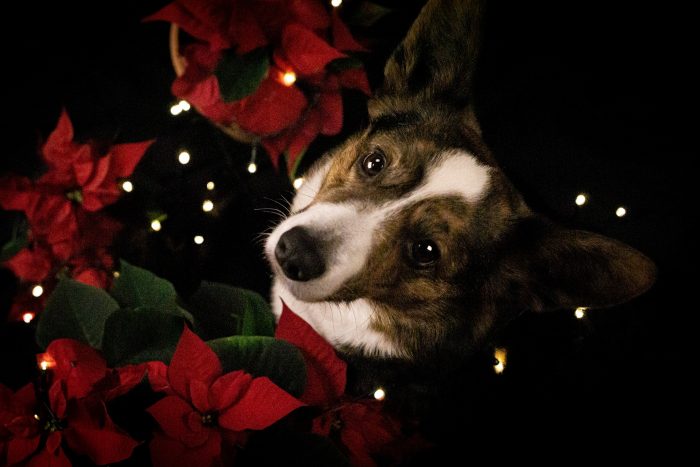Ask the Vet: Holiday plant hazards for pets
By Matthew Kearns, DVM

This year I’ve transitioned to all artificial holiday decorations but I do reminisce about the days of live trees, etc. For those that decorate with live plants/trees be careful. What looks good can be dangerous to dogs and cats. Below is a list of holiday plants that can be dangerous to pets.
Poinsettias: Poinsettias are beautiful and always remind me of the holidays. Luckily, they are not very toxic. They do contain a compound called diterpene esthers. This compound can cause vomiting, diarrhea, and tremors but only in large quantities. Try to keep your pets away from poinsettias but the risk of toxicity is low.
Live Christmas Trees: A live tree is beautiful and smells great but can also release resins, or oils that can irritate a pet’s mouth and digestive tract. These resins accumulate in the water used to keep the try hydrated and pets tend to drink it. This can lead to ulcers, or sores in a pet’s mouth, vomiting, and diarrhea. These symptoms can be quite serious causing dehydration and potentially leading to hospitalization for IV fluids and medications. The needles from the trees are sharp and can cause a mechanical irritation leading to the same symptoms.
Mistletoe: Pucker up buttercup if you’re around the mistletoe. Luckily, ingestion of mistletoe only causes mild gastrointestinal upset (vomiting, diarrhea) and rarely needs attention by a veterinarian. If you do catch your pet near the mistletoe, make sure to give them a smooch before chasing them away.
Holly: Known as the “prickly plant,” holly will only cause symptoms associated with gastrointestinal symptoms such as vomiting and diarrhea. This rarely needs treatment at the veterinarian’s office
Amaryllis: The amaryllis plant contains certain chemicals called alkaloids, and another specific chemical called galanthamine. The alkaloids cause irritation of the mouth, stomach and intestines which leads to drooling, vomiting and diarrhea. Galanthamine is a cholinesterase inhibitor. This chemical can lead to tremors and, in larger volumes, seizures. Luckily, both of these chemicals are in low concentrations in the leaves. The highest concentration is in the bulb which pets tend not to eat.
Lilies: Although lilies are not a flower that blooms around the holidays, they are commonly part of holiday bouquets. Not only can lilies cause irritation of the gastrointestinal tract, but also cause damage to the kidneys (cats are particularly sensitive to this). I would recommend being very careful in having lilies around during the holidays.
 Most of the common plants described just cause an upset stomach so having live plants and trees is not extremely dangerous. However, I would caution using caution when bringing live plants in the household and restrict your pet’s access to them (as best you can).
Most of the common plants described just cause an upset stomach so having live plants and trees is not extremely dangerous. However, I would caution using caution when bringing live plants in the household and restrict your pet’s access to them (as best you can).
I want to thank the readers of this column, as well as wish everyone a Happy Holidays and Happy New Year. I would like to also thank Heidi Sutton, editor of the Arts and Lifestyle section, as well as all the staff at Times Beacon Record News Media for another great year!
Dr. Kearns practices veterinary medicine from his Port Jefferson office and is pictured with his son Matthew and his dog Jasmine.







